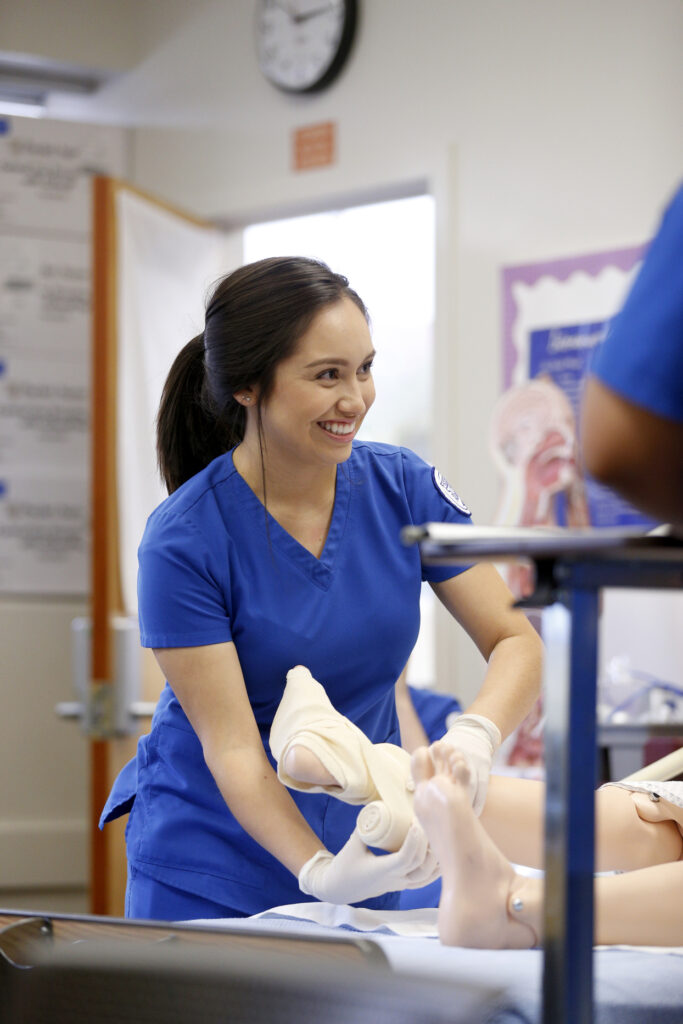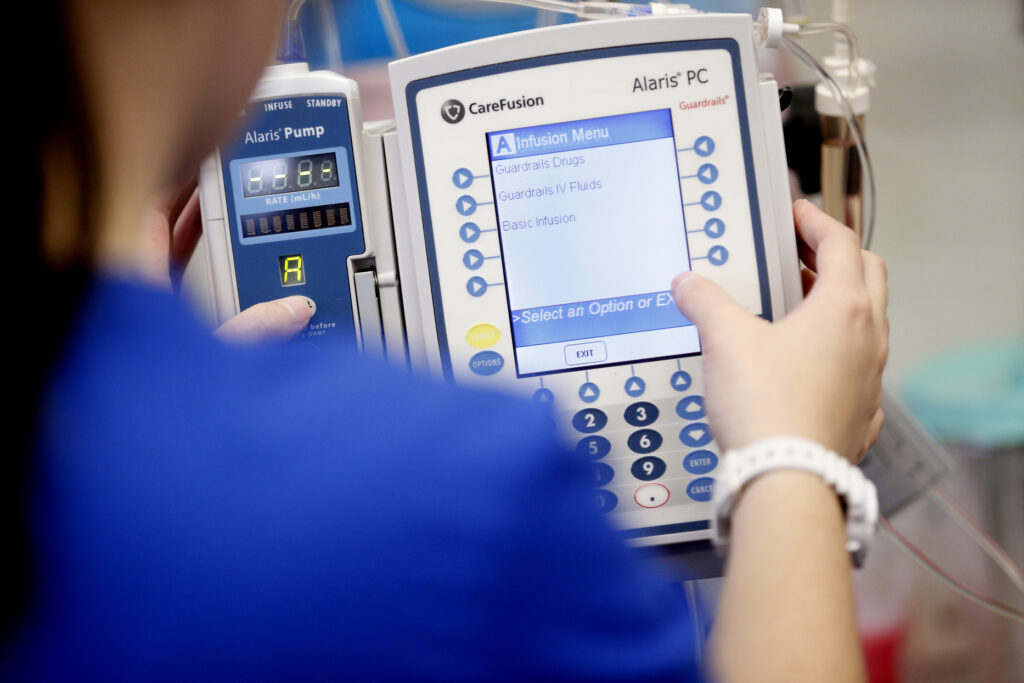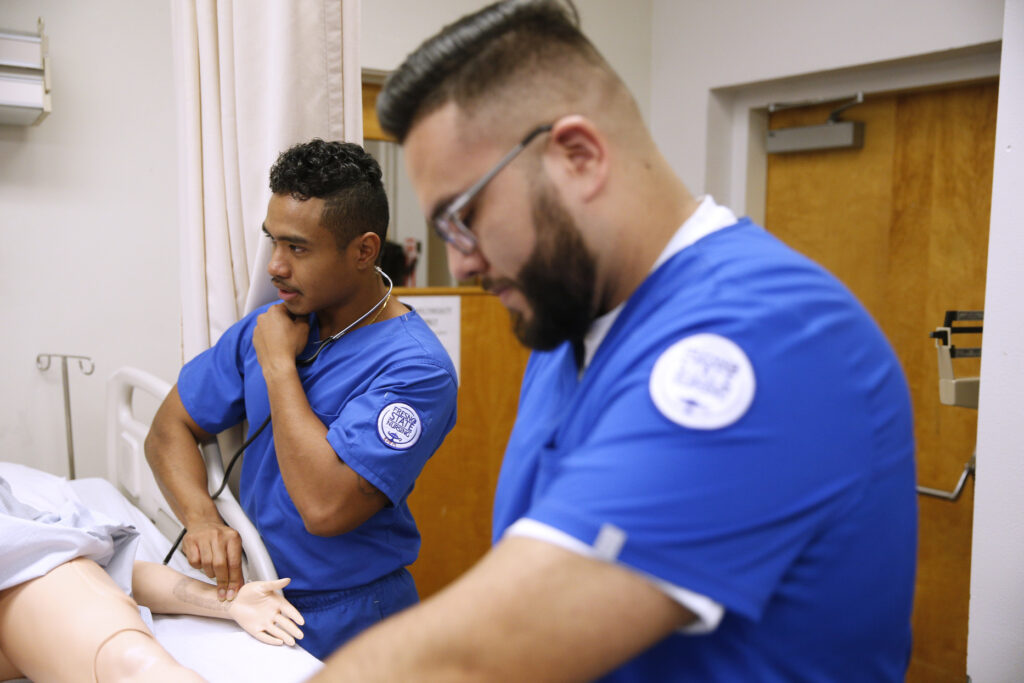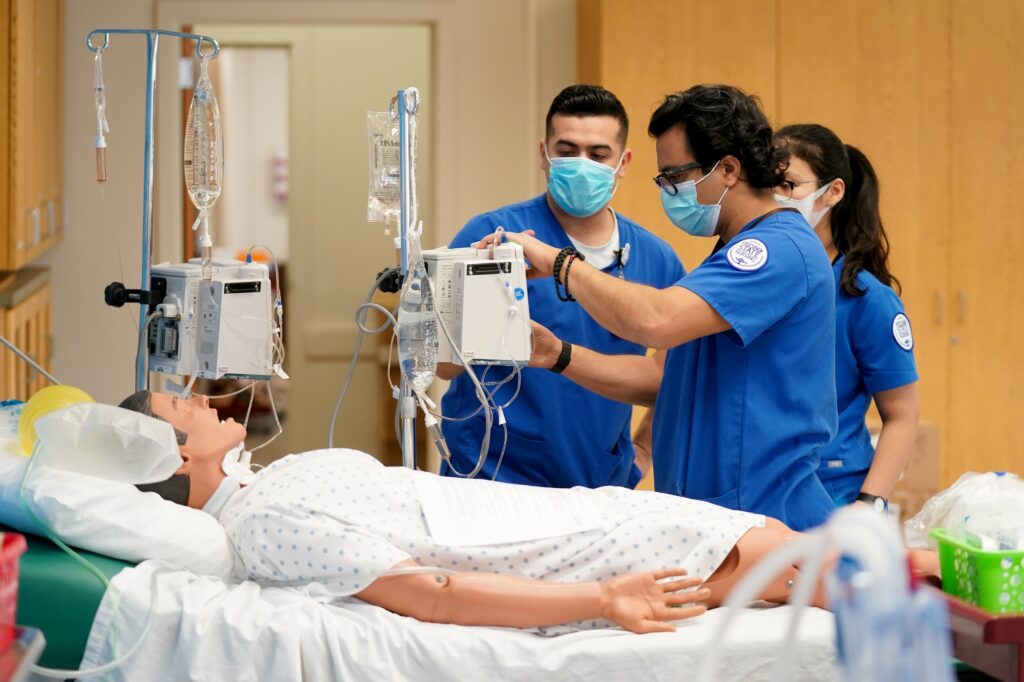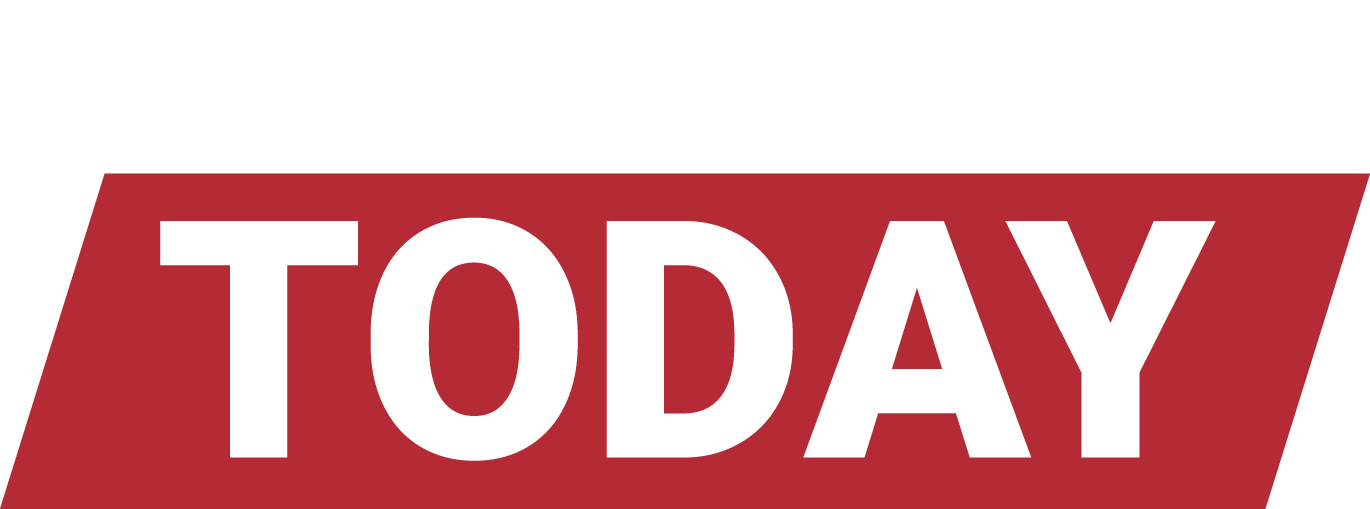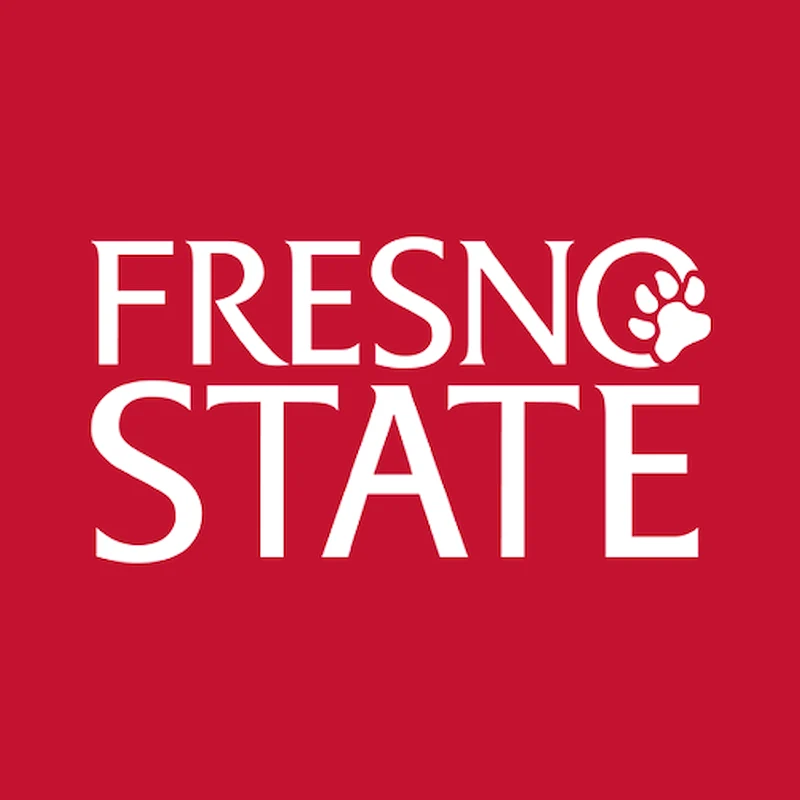Hailey Xu, like many of her peers, relies on the Nursing Resource Center in the School of Nursing at Fresno State to give her a jumpstart on the basic skills needed in the profession – competence, confidence and care.
“We can come into the center after hours to learn new skills, like IV bag testing,” said Xu, a third-semester nursing student. “I was one of the first in my cohort to learn it, which was fun. I then got to teach some of my classmates and actually got to apply what I learned at the hospital during my clinical rotations. This center helps us build confidence, while also building our technique.”
For students like Xu, the Nursing Resource Center is more than just a teaching lab. It is a place where students can immerse themselves in a clinical setting without the pressure of working on real-life patients. It is where they can practice nursing skills in a relaxed, safe and professional environment. It is where bedside manner is born.
The center is outfitted with equipment that mirrors an actual hospital room, with mannequins (from newborns to adults), diagnostic equipment and IV drips and more.
Now, with a transformational $1 million gift from the Leon S. Peters Foundation, the Nursing Resource Center will offer students an elevated learning experience complete with enhanced equipment and technology.
A ribbon cutting ceremony will be held at 11:30 a.m. on Tuesday, Nov. 18, at McLane Hall (Room 180) for the newly named Leon S. Peters Foundation Nursing Resource Center, which is used by both undergraduate and graduate nursing students.
Some of the anticipated upgrades over the next five years include:
- An automated medication dispensing system.
- An electronic charting system.
- New mannequins.
- Four new computer-driven IV pumps.
- 12 new IV arms.
- Three new patient beds.
- Five new exam tables.
- 16 new intramuscular injection practice pads.
Beginning this fall, the bachelor’s degree program increased its enrollment to 70 students admitted per semester to meet the growing interest of the already impacted program. This increased enrollment, as well as a 100% post-graduation employment rate, showcases how the School of Nursing is helping to alleviate the nursing shortage in the Central Valley by producing graduates who are trained and ready to serve.
“The Leon S. Peters Foundation gift will be transformational for our nursing program,” said Dr. Kara Zografos, dean of the College of Health and Human Services at Fresno State. “It will provide the essential technology upgrades and room improvements that will allow our nursing program to exceed the standards of excellence. This gift will give our students the competitive edge to forge beyond confidence and competence and to strive for nurturing compassion.”
Xu says the nursing center also serves as a place of community.
“It’s a place where you can grow and make friends,” Xu said. “There is always someone to help you, and you can learn from older semester students or even teach younger semester students. Here, you can really foster growth and community, which is one of the greatest parts.”
Community connection was one of the core facets of Leon S. Peters, who died in 1983. He was known as a respected businessman, civic leader and philanthropist who was committed to supporting Fresno State.
In 1997, Peters was posthumously awarded the honorary degree of Doctor of Humane Letters by the California State University. Today, multiple buildings and rooms at Fresno State bear his name and reflect his philanthropic spirit.
“The Leon S. Peters Foundation strives to honor Leon’s vision of cultivating a healthy and thriving community,” said Craig Apregan, president of the foundation. “To maintain his legacy, we are committed to funding opportunities like the Nursing Resource Center at Fresno State, which align with the critical priorities that Leon was dedicated to each and every day.”
A large display outside of the center will pay homage to Peters:
“Vision, resilience and purpose. These three words embody Leon S. Peters, who dedicated himself to service and leadership. The son of Armenian immigrants, Leon cherished his community and considered its well-being his personal responsibility.”
